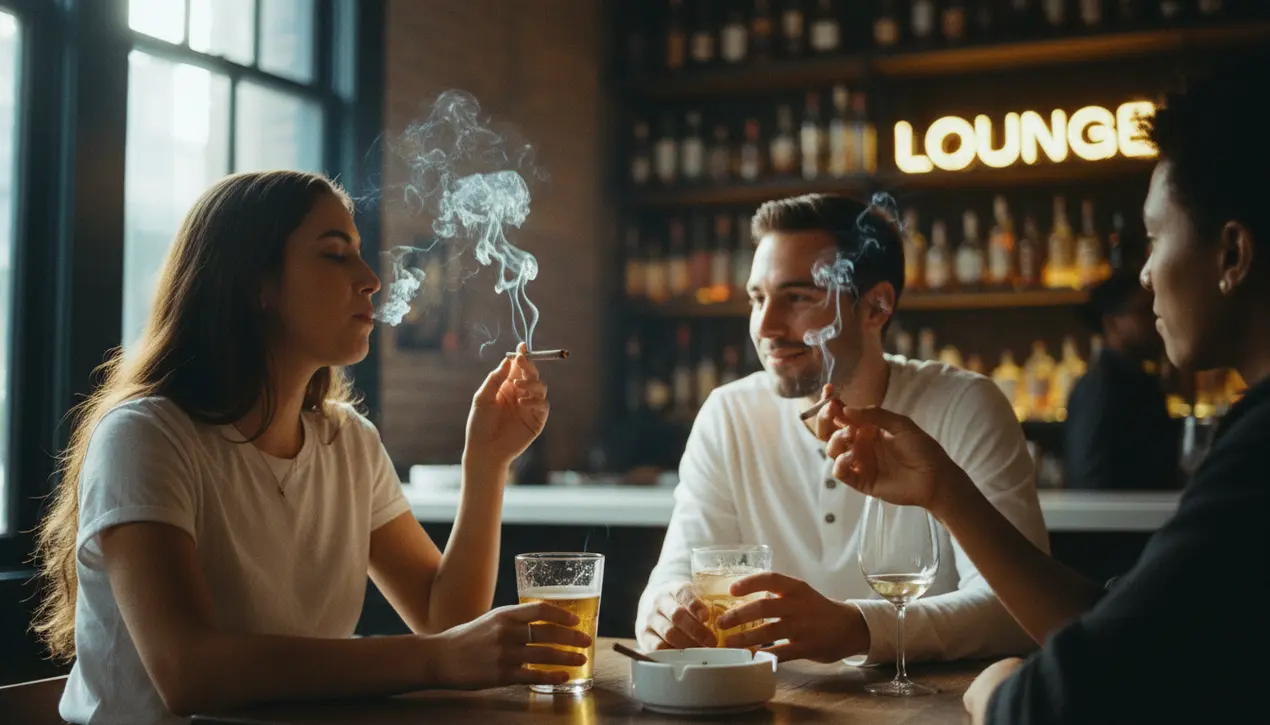
Scienceneuroscience
Study Finds Cannabis Use May Reduce Alcohol Consumption
LA
Laura Bennett
2 days ago7 min read4 comments
In a fascinating exploration of human behavior that feels more like a scene from a relaxed social gathering than a sterile lab, researchers at Brown University constructed a meticulously designed fake bar, stocking it with participants' preferred alcoholic beverages, only to then introduce cannabis joints into the mix. This wasn't for frivolous recreation but a serious scientific inquiry into a question many have pondered anecdotally: does getting high actually make people drink less? The answer, emerging from this unique social experiment, appears to be a tentative yes, at least for a short period, opening a profound conversation about substance interaction, harm reduction, and the complex psychology of choice.Imagine the scene: the dim lighting, the familiar clink of bottles, the social hum of a bar—all the environmental cues that typically trigger drinking behavior were perfectly replicated. Then, the introduction of cannabis shifted the dynamic.Participants, when given access to marijuana, demonstrated a measurable decrease in their alcohol consumption. This finding resonates deeply with the narratives I often hear when interviewing people about their habits and lifestyles; many individuals casually mention 'swapping' a glass of wine for a gummy to unwind, citing a preference for the different kind of relaxation it offers without the next-day fog or caloric load of alcohol.This isn't merely about substituting one substance for another; it's about understanding the underlying motivations for consumption. Are people seeking relaxation, social lubrication, or an escape from stress? The Brown University study subtly suggests that cannabis might satisfy some of these same psychological or social needs in a way that reduces the perceived 'need' for alcohol.This has monumental implications for public health strategies, particularly in an era where alcohol-related liver disease and other harms remain a significant burden on healthcare systems. Could there be a future where harm reduction programs acknowledge this potential substitution effect? It's a controversial yet compelling question that challenges decades of rigid drug policy.Of course, this is a single study, and its limitations are crucial to acknowledge. The effects were observed over a relatively brief timeframe, and the long-term trends, potential for developing a dual dependency, or simply shifting health risks from one substance to another are entirely unknown.Furthermore, individual biochemistry, the specific strains of cannabis used, and the social context all play immeasurable roles that a single laboratory setting cannot fully capture. Yet, the study serves as a critical starting point for a more nuanced, human-centric dialogue.It moves beyond the simplistic 'drugs are bad' rhetoric and delves into the messy, complicated reality of how people actually navigate their choices. Speaking with addiction specialists provides another layer; some express cautious optimism about any pathway that reduces alcohol consumption, given its widespread societal damage, while others warn against promoting cannabis as a 'healthy' alternative, emphasizing the risks to developing brains and mental health.This tension is the heart of the matter—it's never a simple binary. The personal stories are what truly animate this data.I recall a conversation with a man in his forties who told me that after he started using cannabis for chronic pain, his decades-long habit of having three or four beers every night simply vanished. He hadn't consciously decided to stop; he just found he didn't want them anymore.His story isn't universal, but it exemplifies the personal, lived experience that large-scale studies attempt to quantify. As legalization of cannabis continues to spread, creating a natural, large-scale experiment across the population, research like this from Brown University becomes ever more critical. It provides a scientific foundation for the countless individual stories, helping to inform not just personal choices but also the frameworks of future public health policy, all while reminding us that human behavior is rarely as simple as it seems from the outside.
#cannabis
#alcohol consumption
#research study
#featured
#Brown University
#substance interaction
#public health
Stay Informed. Act Smarter.
Get weekly highlights, major headlines, and expert insights — then put your knowledge to work in our live prediction markets.
Related News
Comments
Loading comments...
© 2025 Outpoll Service LTD. All rights reserved.